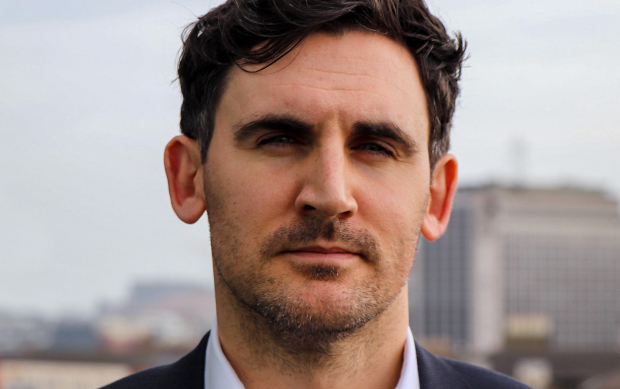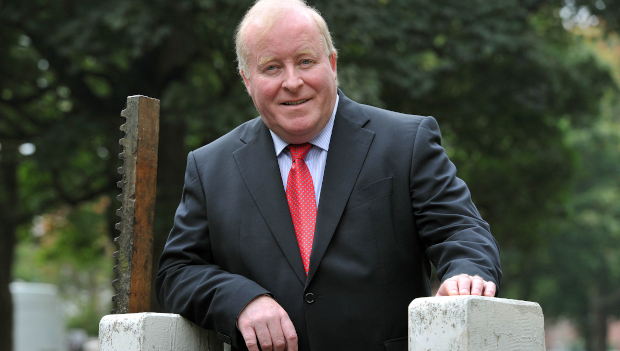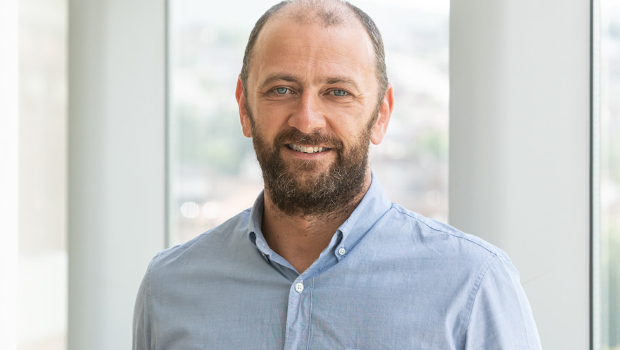
The sum of the parts
Towards the end of last year, Arkphire acquired Trilogy Technologies in a deal which was described as “the first major move of significant scale towards industry consolidation in the Irish ICT managed services sector,” by Arkphire’s CEO Pascal Naylor. While many were still digesting the news and considering its implications, it was announced early in 2020 that Calligo had acquired Dublin-based MSP DC Networks.
Having two acquisitions so close together was bound to lead some people to ask whether this presaged the start of renewed enthusiasm for mergers and acquisitions. It’s interesting to note that, according to analysis by Refinitiv, Irish involvement in technology M&A deals in 2019 was up 16% on 2018 by value to nearly $5.8 billion, although the number of deals was down 22% to 68.
At the announcement of the acquisition of Trilogy, Naylor claimed the acquisition “strengthens and deepens our people and leadership resources to deliver critical scale for the business”. Intriguingly, the company being bought in this instance had previously been an acquirer, snapping up Zinopy in September 2018, in a deal which Creely described as “transformational” for the company. Trilogy also bought B2Lateral in 2014 to gain a presence in the UK market.
As for Calligo’s purchase of Irish MSP DC Networks, CEO Julian Box said as a country “populated by a high proportion of ambitious, data-driven businesses eager to explore how they can make the fullest use of their data and make it work harder for them, Ireland was clearly the logical next step for Calligo’s international expansion.” But it was also “a strategic target,” he added, because it bolstered the company’s “ability to provide local, European and international businesses with a full suite of data-centric managed services that satisfy all requirements in data residency, data privacy and data ethics”.
In light of these two deals, should we expect significant consolidation in the Irish market over the next 12 months? If so, what trends will drive it? Could the UK’s exit from the EU lead to more acquisitions? Or might there be factors at play this year which serve to inhibit further consolidation?
Organic growth
“The outlook for the IT sector in Europe in 2020 is positive,” says Version 1 head of corporate development Kevin Ryan. He acknowledges that “the spectre of Brexit has undoubtedly created uncertainty in the market for all businesses,” but argues it will also “provide growth opportunities for IT service providers as system updates, regulatory changes and customs changes create business challenges requiring IT solutions”.
The focus at Version 1 is on growing the company “through organic and acquisitive means, providing opportunities for our people and better service quality to our customers”. Ryan notes that acquisitions “have played an important role in our growth story, bringing us to new locations, enhancing our capabilities and service offerings, providing new customers and creating a more diverse management team and employee base”.

The company’s strategy for acquisitions has been “to identify niche consultancies with excellent customer relationships that match our core values”. So far, Version 1 has completed 10 acquisitions, the most recent being Bangalore-based TE4B, “adding to our service offering through the development of a software delivery centre”.
When it comes to predicting what to expect in 2020, he says it “promises to be an interesting one from an M&A perspective,” revealing that the company is “in discussions with several acquisition targets and expects to complete at least one transaction in 2020”.
It is not all plain sailing, of courser, as acquisitions “pose plenty of challenges, whether during the negotiation of key terms or the integration of an acquired entity, and the management of these can make or break the success of a deal”. Being acquired “can be quite emotive for the employees of a new acquisition, which is why we continuously review and develop our integration approach to reassure employees and minimise the disruption an acquisition can bring”.
Ryan stresses that “we buy businesses for growth, rather than cost. Once people realise this, they tend to settle into Version 1 and enjoy the benefits of working for a business that invests in its people and affords them the opportunity to work on new technologies, interesting projects and in different geographies.”
Mismatches
“There is a significant amount of VC money, mainly external, looking for opportunities in Ireland and this has been the case for some time,” says Triangle Computer Services managing director Kieron McCabe. But he warns that “we are unlikely to see significant consolidation due to a mismatch in valuations.” He believes Ireland is in “a temporary and strange situation because many Irish-based resellers are genuinely willing to sell”. Until recently, many resellers had “struggled to deliver results consistent with their perceived valuations of their business. However, most are currently experiencing better trading results which, in turn, is encouraging higher valuations.”
Another inhibitor to “significant consolidation at a local level” is that many resellers “have broadly similar types of revenue streams and believe they can grow by better sales execution, while holding their ownership interests”.

It is possible that the UK’s exit from the EU could see some larger resellers continue to enter the Irish market to preserve their UK-based relationships with customers that have moved substantial operations to Ireland. “However, valuations will not make it easy to enter via acquisitions. The very favourable trading conditions currently in the industry are delivering profits for business that have been in the industry for a long time. This may delay further consolidation,” he adds.
The industry “is going through a substantial shift in the nature of its revenue lines. A small shift to cloud will commoditise what were formerly reasonably profitable revenue lines, leaving high-value added and specialised professional and managed services for the resellers of tomorrow. Focusing a reseller business to address this challenge at a time of a great skills shortage will not be solved by ‘revenue consolidation’, in the short term.”
“The Irish ICT managed services market has long been ripe for increased consolidation,” AMI CEO Philip McMichael states, adding that “more mergers and acquisitions” will take place over the course of the coming year “as businesses seek to scale and grow their market share quickly”. He argues the growth “will be largely driven by evolving customer expectations. People now want to deal with one provider for as many elements of their technology needs as possible. Our customers often tell us that they chose AMI because we offer a one-stop shop for all their IT disposal needs.”
His belief is that acquisitions “are the quickest way for an organisation to build additional services into their offering and meet this demand for a streamlined technology partnership”.

In cases where acquisitions don’t make business sense, there will be a drive to increase partnerships. In AMI’s case, IT providers can benefit from partnering with the company to help include additional services in their portfolio, such as secure IT collection, data erasure, disposal and remarketing of old IT equipment, as well as support with customer deployments and office moves. McMichael reveals that 60% of its business “comes through partnerships and this remains a key area of growth in our industry”.
He describes acquisition as “another key business strategy for AMI but it has to be done in the right way”. The company remains “on the lookout” for other IT disposal and installation businesses that can add to its capabilities, but the priority “is choosing a business that shares our culture. Without similar values, tensions and difficulties are sure to arise early and can jeopardise success and the opportunity to scale.”
Bringing up the ‘b’ word, McMichael feels that Brexit “remains somewhat of a wildcard when it comes to making future market predictions”. He acknowledges that more complex regulations around mergers and acquisitions between companies, particularly those operating on both sides of the border, could inhibit consolidation. But on the other hand, “the technology sector is performing strongly in both the UK and Ireland and will continue to do so, with businesses placing technology at the heart of their growth strategies. In this context, no matter what happens, the technology sector should remain in good stead and prove more resilient than many other industries, with opportunities arising for buyers and sellers.”
Consolidated
“From our perspective, we think there will be further consolidation,” says Paul Richmond, business development manager with Tekenable. “Cloud has impacted on traditional MSPs and they are trying to diversify away from their traditional market and offer a wider range of services. We would have been approached a number of times over the years by MSPs interested in acquiring us to complement their service offering.”
He agrees with McCabe that the funding is available for acquisitions. “There’s lots of money around,” he says, “and it always creates a favourable context when it’s possible to raise funding to do acquisitions.” It’s also true that valuations are higher so “people may be more inclined to sell. Everybody wants to cash out at the top of the market. Somebody selling their business now will be getting a much better price than in 2012/2013. There are more people willing to sell. Five years ago, there weren’t because they wouldn’t get much for their business.”

As for Brexit, he says it’s hard to know exactly what effect it might have because there is still uncertainty over what type of Brexit it will be. “The spectre of hard Brexit is still there, but I don’t see the UK’s exit from the EU having a huge impact one way or the other. The overall state of the economy is probably the biggest factor,” Richmond adds, noting that Davy recently upgraded its GDP growth forecast for Ireland to 5.5%.
As for businesses from abroad acquiring Irish businesses, he comments that “there has been a little bit of that”, citing Google’s intention to buy Pointy. “You will always have interest from abroad in Irish companies growing rapidly. Would the fact the UK is out of the EU mean there is likely to be interest from US companies buying here to get a base into Europe? Possibly.”
When it comes to Irish companies buying into the UK market, it’s a possibility. “Could the prices be good because there’s a lot of uncertainty?,” he asks. “Might companies want a base over there so they are less worried about restrictions and tariffs if the UK is outside the EU? We wouldn’t have huge exposure to the UK because 90% of our business is in Ireland.”
He remarks that “over the last 25 years, there hasn’t been consolidation necessarily, because there’s a steady supply of new companies always coming up, technology changes and new areas are opened up, like artificial intelligence and machine learning. Companies exist in that space that didn’t exist a few years ago.”
Rising tide
“There must be acquisition and consolidation in the Irish market,” says Michael Conway, director of Renaissance, “because there are some companies that are not sustainable at the size and scale they’re at. Managed service provision is about scale and delivering vanilla type business into clients in a clean and sensible way. The old style of ‘whatever the customer wants, the customer gets’, isn’t going to work.”
For many smaller channel businesses the choices are simple, he states. They can carry on as they are but in an ever decreasing circle until they close the door, they can build out as a managed service business with recurring revenue that someone could buy and bolt on to their business in the future, or they can go out and work with others to consolidate their services.

With significant growth forecast for the economy, Conway notes there’s an incentive for companies to buy “because they can see the opportunity to grow what they buy. It’s a rising tide to a great degree. But the important thing is to buy the right type of company.” A managed services company with the proper infrastructure and services will be more attractive to buy because it will be in a better position in two year’s time than a legacy business which will probably have shrunk in two to three years “so there is less appetite to buy”.
It’s important to “have something that plugs into what you’re doing” when it comes to acquiring a business.
“Brexit might be interesting,” Conway adds.”We may see some acquisitions coming from Europe to give them an English speaking capability within the euro zone.” As for Irish businesses acquiring in the UK, he observes that the UK market has “been a bit stagnant in the last 18 months. We’ve seen Irish companies acquire in the UK but there hasn’t been a lot in the last 12 months. I’m not sure whether you will see more acquisitions over there or not because there’s so much uncertainty around Brexit.”







Subscribers 0
Fans 0
Followers 0
Followers